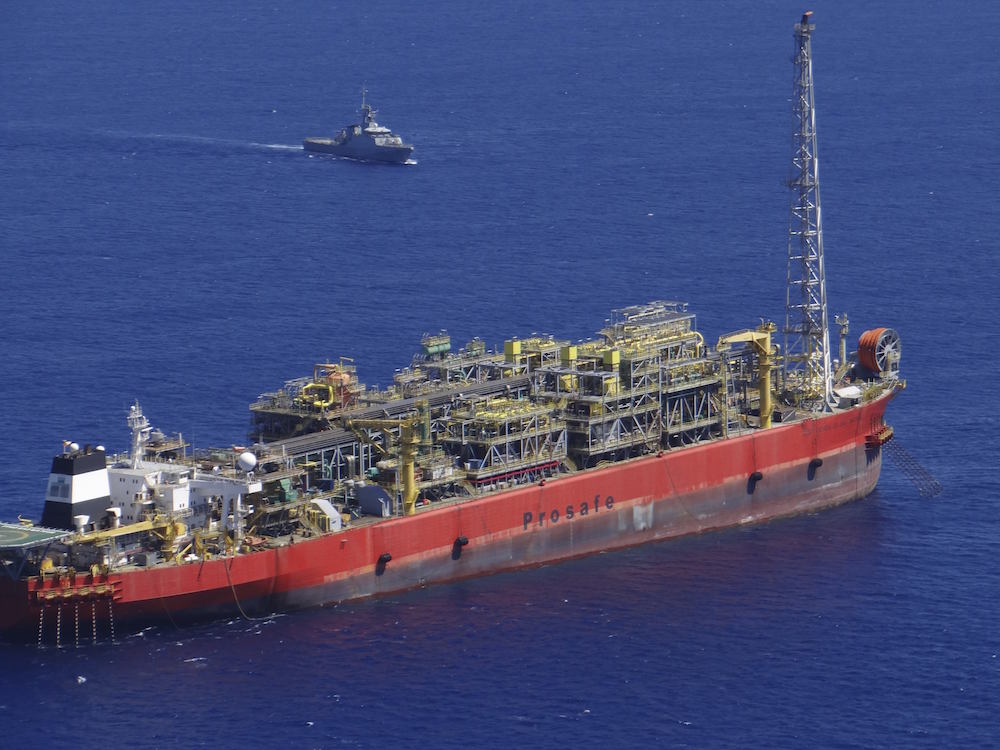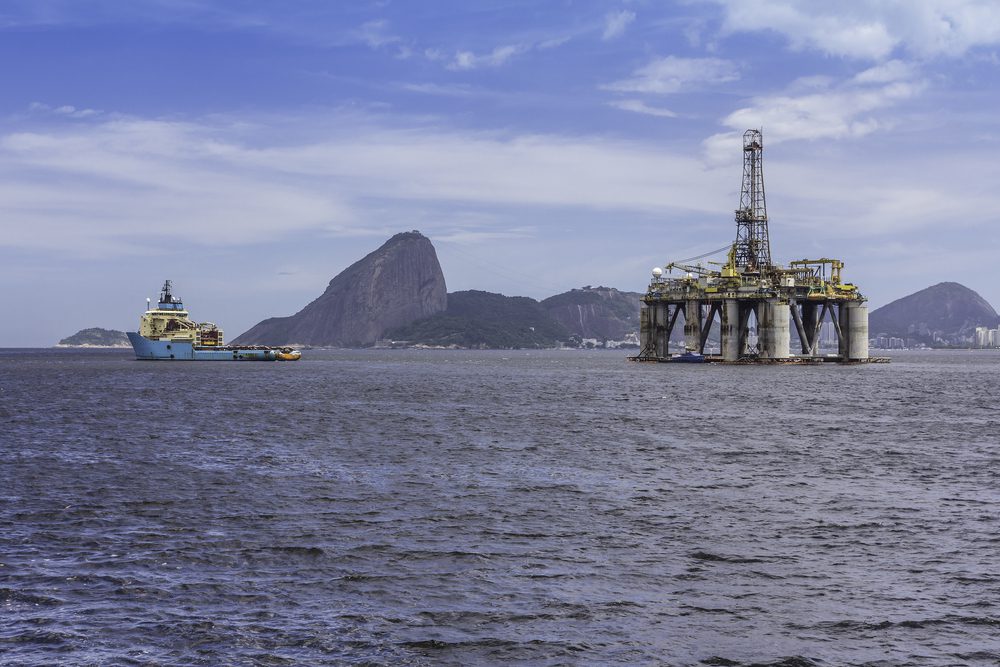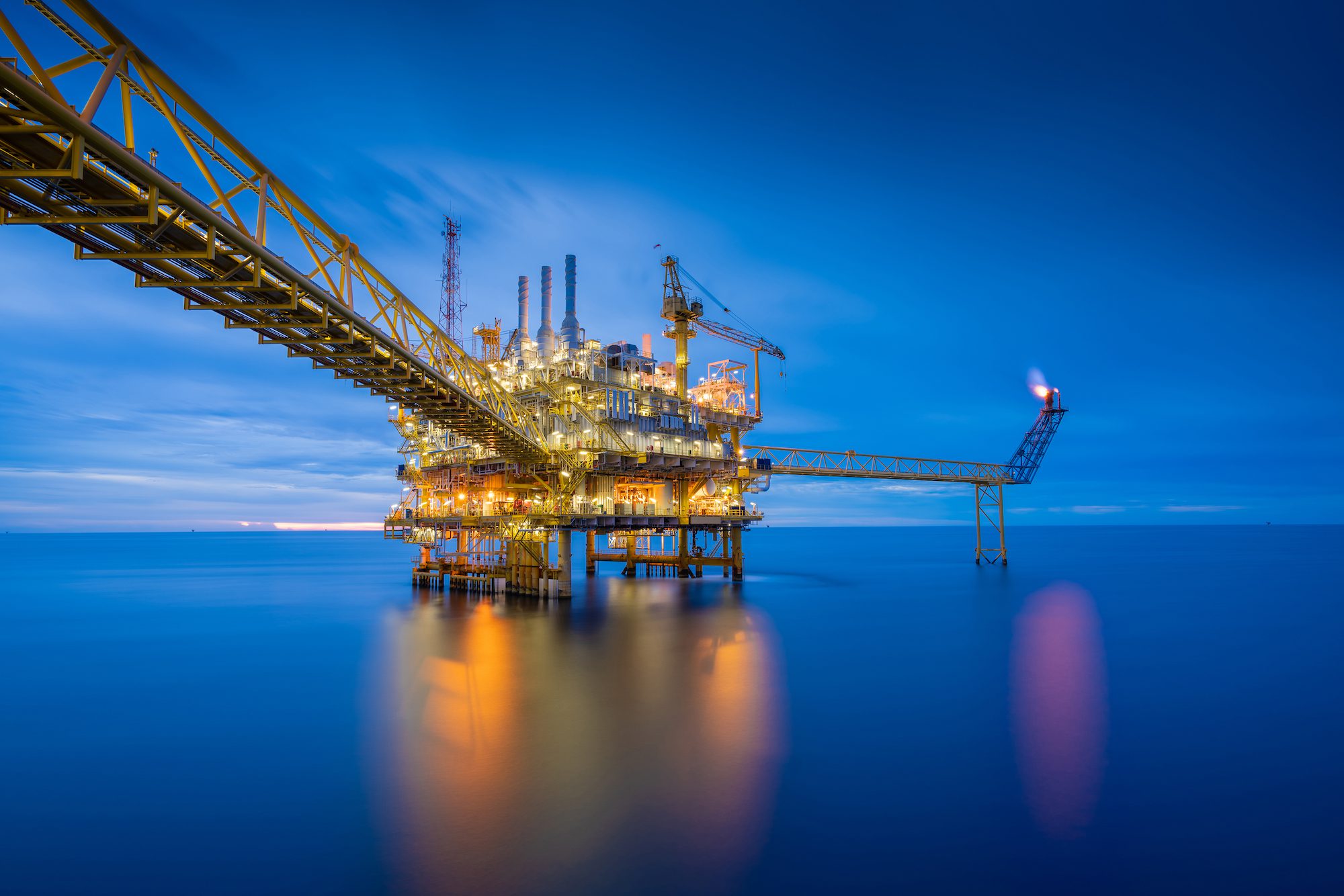The Cidade de Sao Mateus, a floating production, storage and offloading (FPSO) ship that was contracted to Petrobras is pictured in Sao Mateus in Espirito Santo state in this February 12, 2015 handout picture provided by the Brazilian Navy. REUTERS/Brazilian Navy/Handout via Reuters
 By Marta Nogueira
By Marta Nogueira
RIO DE JANEIRO, Feb 13 (Reuters) – Brazil’s oil regulator, the ANP, ordered state-run oil company Petrobras to study ways to boost output on a floating natural gas and oil production ship a week before a deadly explosion on Wednesday, according to agency documents.
Studying ways to reduce unused production capacity on the Cidade de Sao Mateus, a floating production, storage and offloading (FPSO) ship leased to Petrobras by Norway’s BW Offshore Ltd, was made a condition for approval of Petrobras’ development plan for the Camarupim and Camarupim Norte natural gas fields, the ANP said on Feb 4.
The studies must be presented by January 2016, according to a ruling by the ANP’s governing board.
The ANP has been pressing Petroleo Brasileiro SA, as Petrobras is formally known, to boost oil and gas output, and to increase its royalty payments to the government, especially from older and shallower water fields in the Campos and Espirito Santo Basins.
Those fields have received less investment than newly discovered giant fields in the Santos Basin even though they produce the bulk of Brazil’s oil and gas. Brazil also needs more gas to generate electricity amid a drought that is cutting its hydro-power potential.
The Cidade de Sao Mateus has been producing in the fields since 2009. It had production of about 2,200 barrels of oil and processed 2.25 million cubic meters (79.5 million cubic feet) of natural gas per day before Wednesday’s gas explosion, which killed at least five and left 26 injured. Four are still missing.
Actual oil production was less than 10 percent of the Cidade de Sao Mateus’ 25,000-barrel-a-day capacity and gas processing was less than a quarter of the platform’s pre-accident capacity of 353 million cubic feet (9.9 million cubic meters) a day.
Oil is stored aboard the ship until a relief tanker can move it to a refinery. The gas, after being processed, is put into a 60-kilometer (37-mile) undersea pipeline for shipping to shore.
The Cidade de Sao Mateus is anchored about 80 kilometers from the Port of Vitoria in Brazil’s Espirito Santo State. (Additional reporting by Jeb Blount; Editing by Paul Simao)
© 2015 Thomson Reuters. All rights reserved.
Editorial Standards · Corrections · About gCaptain
This article contains reporting from Reuters, published under license.

 Join The Club
Join The Club











